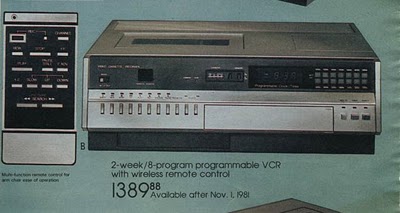The digital equivalent of a Trojan Horse was laid at the feet of Canadian telecom regulators Monday when officials from Bell, Canada’s largest phone company, announced they were withdrawing their controversial proposal to mandate usage-based billing on all wholesale broadband accounts.
The original proposal would have mandated that independent Internet Service Providers bill each of their individual customers a monthly fee based on their Internet usage in addition to the wholesale access rates paid to Bell all along. The pricing proposal would have forced every ISP in Canada to abandon flat rate Internet service, raise prices, reduce usage allowances, and increase overlimit penalties.
Now Bell has told the Globe & Mail newspaper it wants to introduce something called “Aggregated Volume Pricing” instead — a plan Bell claims will shift financial penalties for “high usage” away from individual customers and onto the ISPs themselves. Bell also slashed the proposed overlimit fee from a heavily-defended-as-fair $2.50 per gigabyte to a more modest $0.30/GB, perhaps echoing AT&T’s forthcoming overlimit fee.
In fact, Bell’s revised plan is the same Internet Overcharging scheme under a new name.
The radical reduction in overlimit fees only further illustrates the “phoney-baloney” of providers attempting to monetize broadband usage under the guise of “fairness” and “congestion relief.” Last week’s ’eminently fair’ $2.50 is this week’s ‘more than reasonable’ $0.30.
Bell exposed their hand — showing they have been bluffing about congestion all along. An analysis of the proposed rates shows the company is still trying to target “heavy users.” But instead of penalizing them into reducing their consumption, Bell is now seeking to monetize that usage, not control it. By shifting aggregate usage costs to the wholesale market, Bell hopes individual customers will blame independent ISP’s for higher bills, not them. Independent providers have to pass along their wholesale costs as part of the retail price of their service. It’s a high tech shell game, one that consumers will always lose.
Despite this, Bell assumes the revised plan will take the bipartisan heat off its backside since it first proposed doing away with flat rate Internet service in Canada.
“With our filing today, we are officially withdrawing our UBB proposal,” said Mirko Bibic, Bell’s head of regulatory affairs. “Let’s move on, in my view, and use the CRTC hearing as an opportunity to approve those principles and get the implementation details right.”
Several Canadian officials were not impressed and one — Industry Minister Tony Clement — said exactly that.
Canada’s consumer groups and politicians have the giant telecom company on the run after using Bell CEO George Cope’s own words against him. Cope openly admitted in conference calls with investors UBB had everything to do with monetizing broadband usage for profit.
Bell’s attempt to serve warmed-over Internet Overcharging from a new recipe isn’t flying among consumer groups either, who recognize it as more of the same leftovers, just under a new name.
Bill Sandiford, who heads a coalition of wholesale ISPs called the Canadian Network Operators Consortium, told the Globe & Mail Bell was simply presenting its usage-based pricing model in a more acceptable guise.
“We don’t think this is an about-face. It’s the same thing, just dressed up differently,” Mr. Sandiford said. “We don’t like it. It’s still wholesale UBB.”
Openmedia.ca, an online activist group, said Bell’s new proposal shows consumers are having an impact, but the fight is by no means over.
“We’re pleased that Canadians will now have the option to use indie ISPs like Teksavvy and Acanac to access the unlimited Internet,” said OpenMedia.ca’s Executive Director Steve Anderson. “This is a giant step forward for the Stop The Meter campaign, and a victory for those who support competition and choice in Canada’s Internet service market.”
“While this is a positive move, it is only a Band-Aid solution to a much larger problem. We at OpenMedia.ca hope the CRTC takes Bell’s submission as a sign that widespread usage-based billing is not an acceptable model for Internet pricing, and that it creates policy to support the affordable Internet.”


 Subscribe
Subscribe









